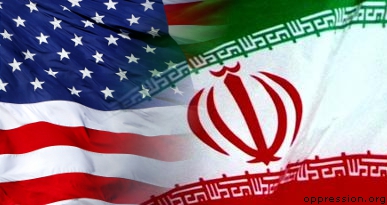Iran has about $100 billion in foreign exchange assets around the world, of which it will be able to access $4.2 billion under last year’s nuclear agreement with six world powers.
 Iran has about $100 billion in foreign exchange assets around the world, of which it will be able to access $4.2 billion under last year's nuclear agreement with six world powers, a senior U.S. administration official said on Friday.
Iran has about $100 billion in foreign exchange assets around the world, of which it will be able to access $4.2 billion under last year's nuclear agreement with six world powers, a senior U.S. administration official said on Friday.
The official, who spoke to Reuters on condition of anonymity, said the money and assets were held in various countries and that a significant proportion was Iran's oil revenue. Financial and other sanctions have meant Tehran has not had free access to spend it.
The governor of Iran's central bank said in mid-2012 it had built up $150 billion in foreign reserves to protect itself against tightening punitive measures on the country.
Under the November 24, six-month accord between Iran and the major powers, Tehran will receive limited sanctions relief, which the U.S. estimates to be worth about $7 billion, in return for curbing its disputed nuclear program.
Of this amount, $4.2 billion is in the form of access to currently blocked Iranian revenue held abroad.
The U.S. official said Iran would identify from where it wants to take the funds and that Western authorities would facilitate their transfer in a series of installments during the next half year, depending on the Islamic Republic carrying out its part of the deal.
The White House also referred to the $100 billion figure in a summary it released on Thursday of the nuclear agreement between Iran and the United States, Russia, China, France, Britain and Germany.
The value of the sanctions relief was a "small fraction" of this amount of Iranian foreign exchange holdings that will continue to be blocked or restricted, it said.
The interim accord - meant to buy time for negotiations on a final settlement of the decade-old nuclear dispute - also pauses Western efforts to cut further Iran's oil exports.
The U.S. official made clear that the volume would not increase if the oil price were to fall during the six-month agreement, the implementation of which is due to start on Monday.
Japan, South Korea, China, India, Taiwan, and Turkey are still importing Iranian oil, while European companies are sizing up the potential of an end to the economic isolation of Iran.
Reuters reported this week that Belgian chemical firm Tessenderlo will ship fertilizer to Iran within weeks as the easing of Western financial sanctions has helped Tehran complete its first potash tender purchase in two years.